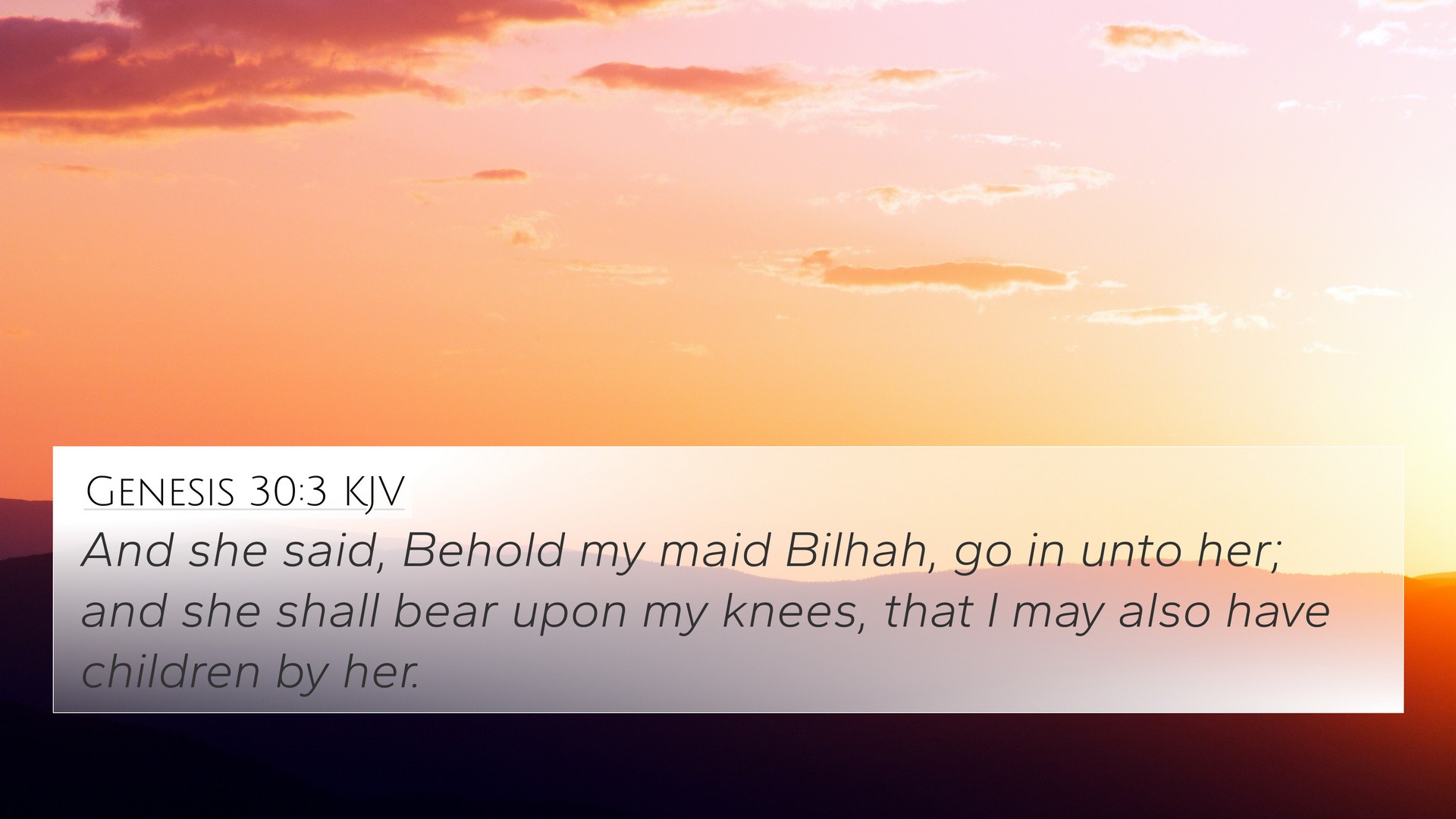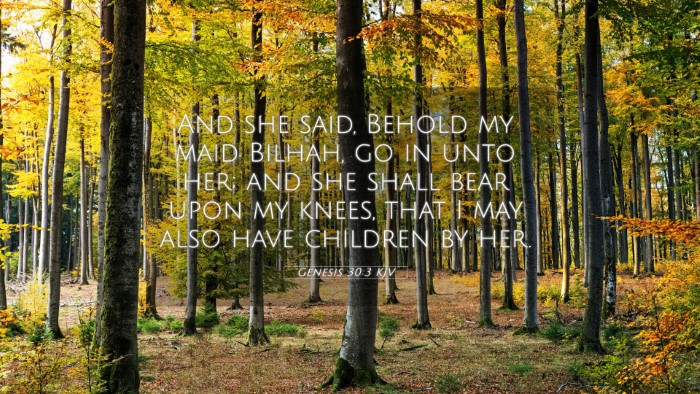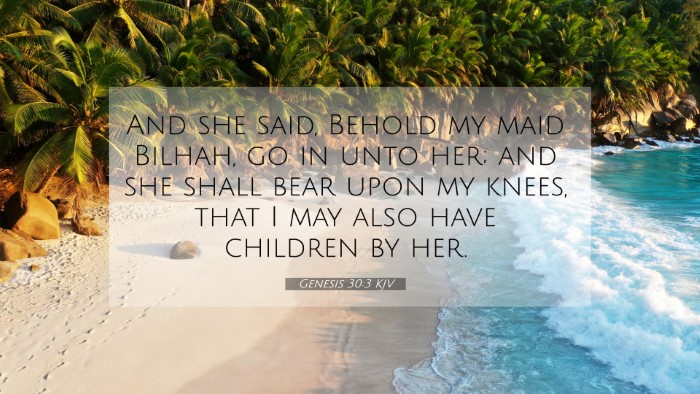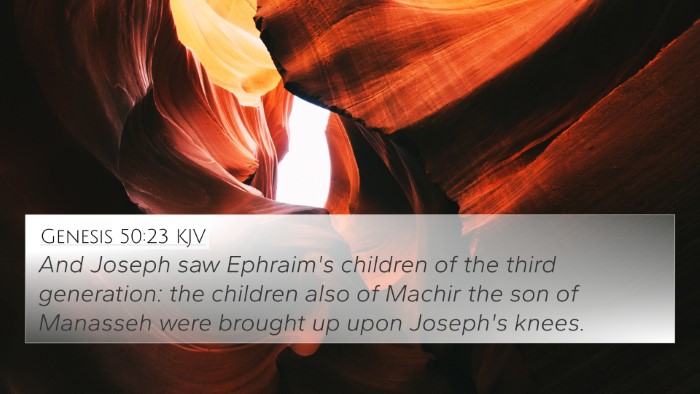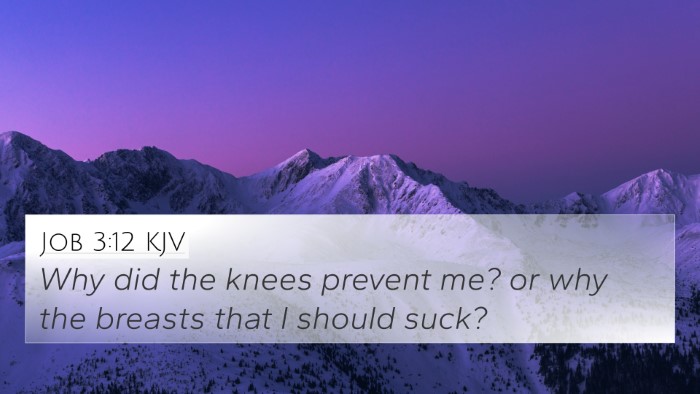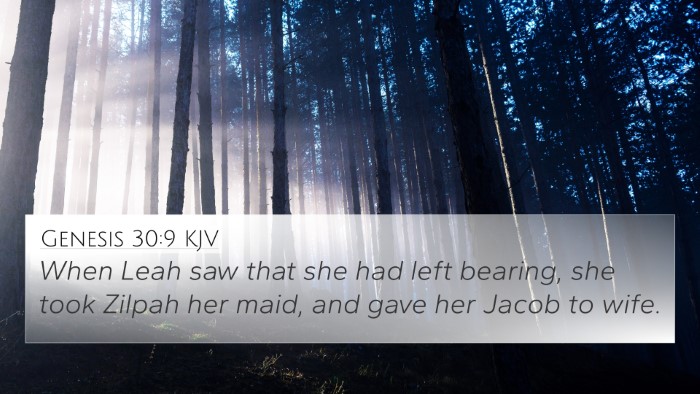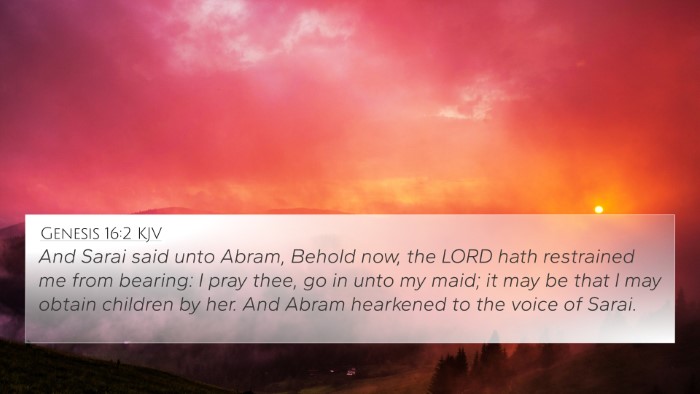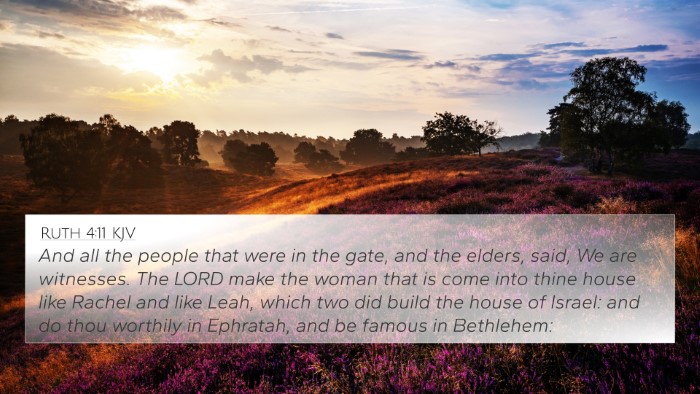Understanding Genesis 30:3
Genesis 30:3 states:
"And she said, Behold my maid Bilhah, go in unto her; and she shall bear upon my knees, that I may also have children by her."
This verse is significant within the broader narrative of Jacob's family dynamics, particularly in the context of Rachel's struggle with infertility and her complex relationship with Leah.
Commentary Insights
Drawing from various public domain commentaries, we can glean the following meanings:
-
Matthew Henry:
Henry illustrates the desperation of Rachel as she seeks a way to bear children, highlighting her willingness to adopt the customs of the day. By offering her maid Bilhah, Rachel reflects the cultural practice of surrogate motherhood.
-
Albert Barnes:
Barnes remarks on the cultural implications of this action, emphasizing how the pursuit of offspring was paramount for women in ancient Israel. He notes the significance of bearing children as a measure of status and personal value.
-
Adam Clarke:
Clarke discusses the psychological implications of Rachel's actions, suggesting that her feelings of inadequacy due to her childlessness prompted her to resort to a surrogate. He further cites that Rachel's anguish leads to a series of family conflicts that would arise from this choice.
Contextual Background
This passage occurs within the context of Jacob's family, where sibling rivalry and jealousy between Rachel and Leah are prevalent. Rachel's command underscores her desperation as Leah has already borne several children.
Thematic Bible Verse Connections
Genesis 30:3 can be cited in connection with several other biblical themes and verses:
- Genesis 16:2: The story of Hagar and Sarah, highlighting another instance of surrogate motherhood.
- 1 Samuel 1:11: Hannah's plea for a child and her subsequent offering of Samuel to the Lord.
- Galatians 4:22-23: Paul uses the story of Hagar and Sarah as an allegory for two covenants.
- Job 3:3: Job's lament about the day of his birth, reflecting on the significance of childbearing and life.
- Luke 1:36: The angel's announcement to Mary concerning her relative Elizabeth's pregnancy in old age promotes themes of miraculous childbirth and God's timing.
- Genesis 29:31: The Lord saw Leah's unloved state and opened her womb, contrasting Rachel's later experience.
- Psalm 113:9: God’s ability to bless the barren woman and make her a mother of children.
Cross-Referencing Biblical Texts
When engaging in cross-referencing Biblical texts, it becomes essential to effectively study these stories in context. Tools for Bible cross-referencing can enhance our understanding of these connections:
- Bible concordance for identifying key themes.
- Bible cross-reference guide for deeper studies.
- Cross-reference Bible study to analyze connections.
- Bible reference resources for comprehensive exploration.
Inter-Biblical Dialogue
The narrative of Genesis 30:3 fosters an inter-biblical dialogue, as it reflects on themes of identity, value, and the societal pressures surrounding motherhood. These discussions can be further examined through:
- How to find cross-references in the Bible to enrich understanding.
- Identifying connections between Old and New Testament writings.
- Detailed cross-references that illuminate prophetic and apostolic teachings.
- Thematic studies of parallels in the scriptures.
Conclusion
In conclusion, Genesis 30:3 encapsulates a poignant moment of desperation and cultural practice in the backdrop of Jacob's family. Understanding this verse through public domain commentaries allows for a multi-faceted exploration of its themes and connections to other significant biblical texts.
